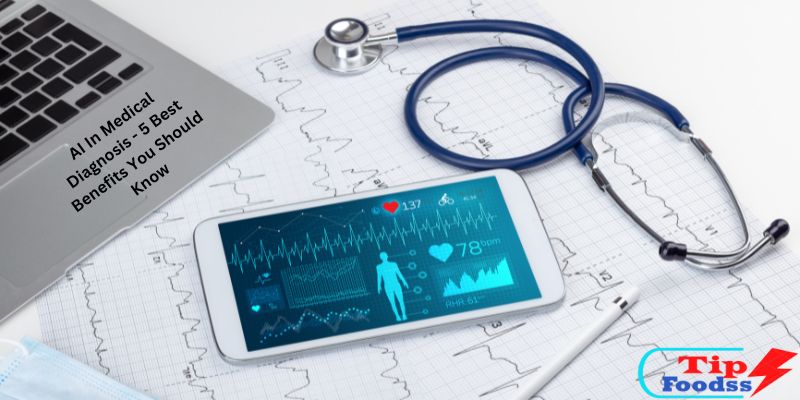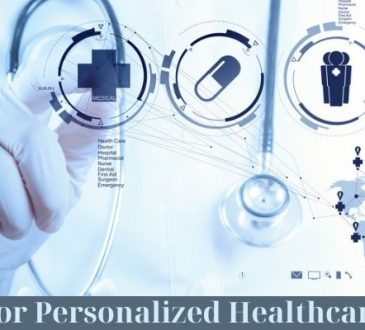AI In Medical Diagnosis – 5 Best Benefits You Should Know
Artificial intelligence, or AI, is becoming more and more prevalent in the field of medicine, notably in the diagnosis and planning of treatments. There has been a lot of research done on how AI may enhance clinical decisions and help doctors make better decisions. In this article, with tipfoodss.com, let’s find out some useful life information about AI in medical diagnosis!
Contents
1. Overview about AI in medical diagnosis
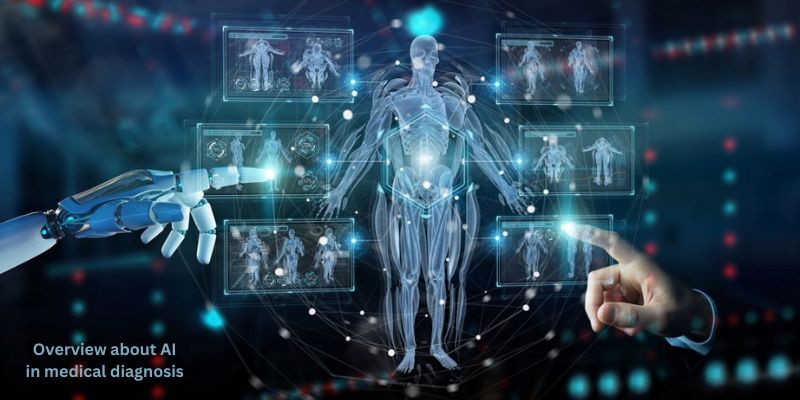
With the use of machine learning models, medical data gathered via other techniques, such as big data, is analyzed in order to identify patterns that may be used to enhance patient outcomes and experiences. AI has become a crucial component of contemporary healthcare thanks to recent technical advancements, spearheaded by COVID-19.
Clinical decision support and image analysis are now the two most popular machine learning applications in healthcare settings. Utilizing clinical decision support systems, practitioners may create therapies that are based on results. Additionally, it is used in medical imaging to examine CT scans, X-rays, MRIs, and other pictures for lesions or other radiological abnormalities in people.
The COVID-19 pandemic’s obstacles led to a technical advancement in the medical field. AI-enabled solutions, such algorithms created to support the monitoring and analysis of patients with coronavirus, have been widely incorporated by health systems and organizations.
The medical industry has a lot of potential and advantages thanks to AI. There is little question in the healthcare industry that this technology will play a crucial role in the development of digital health systems that will influence and support contemporary medicine.
2. Benefits of AI in medical diagnosis
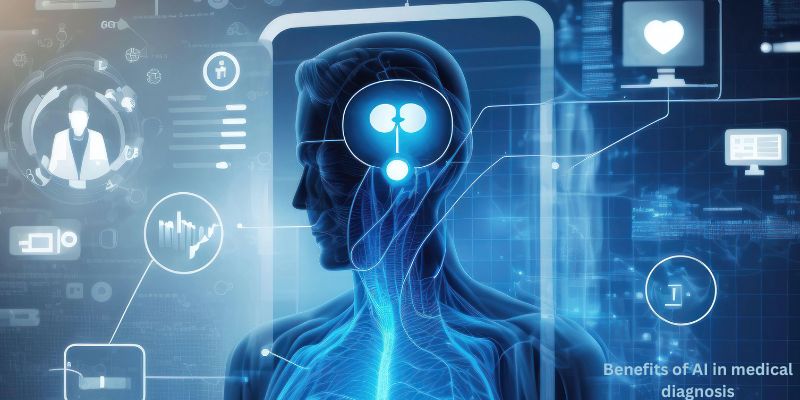
Applications of AI in medicine may aid the healthcare industry and society at large in a variety of ways, such as through expediting research or assisting physicians in making better decisions on treatment or diagnosis.
- Early illness identification and diagnosis: Machine learning models may be used to monitor patient symptoms and notify medical professionals when certain hazards rise. By gathering data from medical equipment, this system can identify more complicated problems.
- Designing personalized therapies in real time is made possible by the fact that AI models can learn and remember references. Patients might have access to an AI-powered virtual assistant through healthcare services at any time. Inquiries might be answered by this system depending on the patient’s medical background, preferences, and requirements.
- Clinical trial efficiency: The use of technology can shorten the duration of clinical trials by enabling a quicker search for the medical codes associated with patient outcomes.
- Accelerate development: In part because of two considerations, AI may make researching new medications less expensive. In the beginning, it can enhance drug design and identify viable medication combinations. Additionally, it can deal with a lot of the problems that Big Data presents for the life sciences sector.
- AI already plays a significant role in medical imaging nowadays in terms of reducing mistakes in diagnostic imaging. It can identify early indications of breast cancer or other illnesses with the same accuracy as human radiologists.
3. AI in medical diagnosis applications
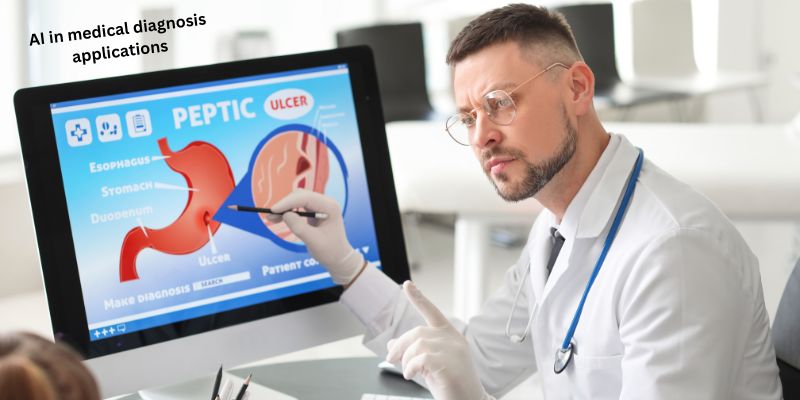
Artificial intelligence is being used in new ways in medicine that are revolutionizing the way that patients are cared for. For instance, using 3D image segmentation from CT scans in conjunction with deep learning techniques and AI technologies, it is possible to identify lung lesions caused by COVID-19.
During the coronavirus pandemic, software has been especially important since it has been created to make forecasts and monitor the progression of infectious illnesses in real time. In a similar vein, a virus-fighting algorithm that can anticipate the SARS-CoV-2 virus’s sequence in a matter of seconds has been developed. This data is important for developing a new kind of messenger RNA vaccine.
A technique has been created that enables the 3D structure of a protein to be predicted from amino acid sequences, which is useful in other fields including the development of novel medications. Protein folding is regarded as one of the main issues in biology. This method may be able to forecast folding structures, aiding in the understanding of how molecules function and the development of novel medications.
Machine learning is especially useful in situations when the diagnostic data a doctor looks at has already been digitized. Like as:
- Using CT scans to identify lung cancer or strokes.
- Evaluating the risk of sudden cardiac death or other heart conditions using cardiac MRI and ECG data.
- Skin image classification of skin lesions.
- Recognizing diabetic retinopathy symptoms in eye photos.
If you are interested in life topics, you can also refer to Do You Know Curry Health Benefits? Best 7 Advantages.
4. Conclusion
Accurate disease diagnosis requires years of medical training. Even then, making a diagnosis may be a time-consuming, tedious process. In many industries, the demand for knowledge far surpasses the supply. As a result of the demand on doctors, crucial patient diagnoses are routinely delayed.
We are already using AI to design pharmaceuticals, customize therapies, and even modify genes more effectively. But this is only the start. We can utilize AI to assist us identify important patterns that we can use to make precise, economical judgments in complicated analytical procedures the more we digitize and combine our medical data.
I hope you found this article about AI in medical diagnosis useful. Have a good day!

